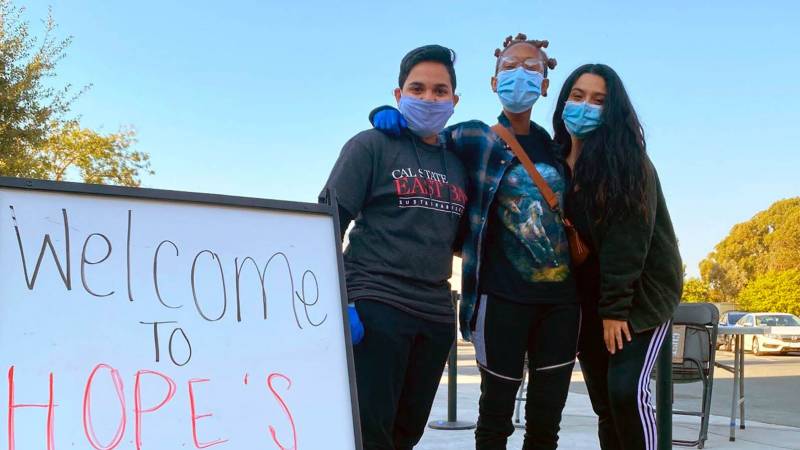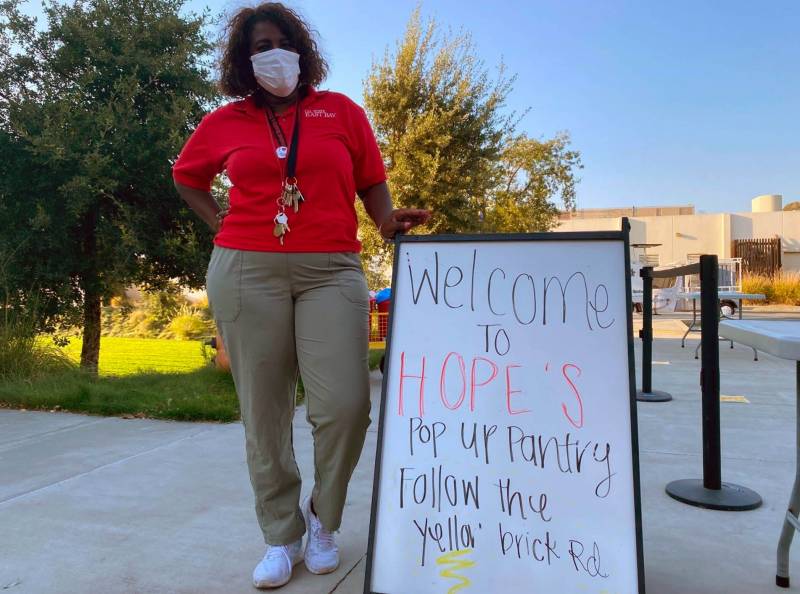Lilian Mworia is a 22-year-old international student from Kenya who attends California State University, East Bay. When the COVID-19 pandemic hit, not only did she lose access to in-person classes, she lost her source of income: her on campus job. She says she had no other choice but to live in her car for three months.
Mworia is in her final year at CSU East Bay. She was living with relatives before the pandemic, but once March arrived she wasn’t able to secure temporary housing or financial assistance. It wasn’t until she missed an exam that one of her professors told her about the school’s Pioneers for H.O.P.E. program, which aims to help the campus’ most-at-risk students facing homelessness, food insecurity and other dire situations to meet their basic needs.
Due to the pandemic, some college students have had to confront a huge set of challenges. Schools are not only a place for education — for many, they’re a place of safety, food and a source of speedy internet access. To make matters worse, many students who had on-campus jobs have now lost them, making it harder to fulfill their basic needs.
California’s worsening problem of student homelessness began long before the pandemic. As noted in a wide-ranging UCLA report released this fall titled “Dismantling Student Homelessness in California,” 11% of all CSU students across the state experienced homelessness in the 2018-2019 school year. A larger number of students who identified as Black or Latinx experience homelessness compared to other racial groups.
The report also found that although food insecurity and homelessness amongst students has been an issue for the past decade, the COVID-19 pandemic exacerbates the problem: “Families that were already on the brink of financial and housing insecurity may become eligible for homelessness assistance due to COVID-19,” the report states.


